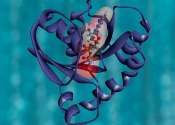Improving the robustness of engineered bacteria to nutrient stress
Researchers from the Universities of Bristol and Hamburg have engineered bacteria with internal nutrient reserves that can be accessed when needed to survive extreme environmental conditions. The findings, published in ACS ...









